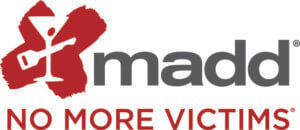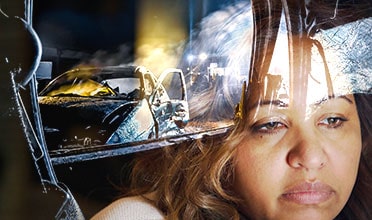77% of Americans back federal action requiring vehicle technology to prevent drunk driving, says Ipsos poll
WASHINGTON, D.C. – Most U.S. consumers support state-of-the-art technology as standard equipment in all new vehicles to prevent drunk driving, according to a new nationwide poll conducted by Ipsos for Mothers Against Drunk Driving (MADD).

The survey found that 9 of 10 Americans support technology that is integrated into a car’s electronics to prevent drunk driving (89% say it is a good or very good idea). The strength of support cuts across gender, age, income and regional differences.
The Ipsos survey also found:
- 3 of 4 (77%) back Congressional action to require this technology in all new vehicles.
- More broadly, 8 of 10 (83%) believe that new auto safety features should be standard in vehicles as they become available, not part of optional equipment packages.
While drunk driving deaths have been cut by more than 50 percent since MADD was established 40 years ago, fatalities have plateaued at 10,000 annually over the past decade.
Making drunk driving prevention technology standard in every new car could prevent more than 9,400 deaths, according to an Insurance Institute for Highway Safety study last year.
“Drunk driving is the biggest killer on our roadways, which is why MADD is calling for a technological vaccine,” said MADD National President Alex Otte. “The American public gets it, and now it’s time for our national leaders and the auto industry to use 21st century solutions to finally solve a century-old public safety crisis.”
Such systems include driver monitoring, which can detect signs of distracted, impaired or fatigued driving, and alcohol detection, which uses sensors to determine that a driver is under the influence of alcohol and then prevent the vehicle from moving. Technologies like these would not only prevent drunk driving, but also detect other dangerous behaviors such as drowsy driving, distracted driving and medical emergencies.
Congresswoman Debbie Dingell (Michigan) has pledged to reintroduce legislation this year to advance the use of vehicle technology to prevent drunk driving. The Honoring Abbas Family Legacy to Terminate Drunk Driving (HALT) Act was named in memory of a Michigan family, Issam and Rima Abbas and their children Ali, Isabella, and Giselle, who were killed by a drunk driver in 2019. The HALT Act was a technology-neutral approach adopted by the U.S. House last year as part of the transportation infrastructure bill known as the Moving Forward Act, which was awaiting action in the U.S. Senate when Congress adjourned in December. Similar legislation, the RIDE (Reduce Impaired Driving for Everyone) Act, was also pending in the Senate when the 116th Congress ended. A new Senate measure is expected to be introduced this year as well.
About The Survey
The poll was conducted March 5th to March 7th, 2021 by Ipsos using their KnowledgePanel®. This poll is based on a nationally representative probability sample of 1,016 general population adults age 18 or older, with a margin of sampling error of +/- 3.3 percentage points at the 95% confidence level.
About Mothers Against Drunk Driving
Founded in 1980 by a mother whose daughter was killed by a drunk driver, Mothers Against Drunk Driving® (MADD) is the nation’s largest nonprofit working to end drunk driving, help fight drugged driving, support the victims of these violent crimes and prevent underage drinking. MADD has helped to save more than 400,000 lives, reduce drunk driving deaths by more than 50 percent and promote designating a non-drinking driver. MADD’s Campaign to Eliminate Drunk Driving® calls for law enforcement support, ignition interlocks for all offenders and advanced vehicle technology. MADD has provided supportive services to nearly one million drunk and drugged driving victims and survivors at no charge through local victim advocates and the 24-Hour Victim Help Line 1-877-MADD-HELP. Visit www.madd.org or call 1-877-ASK-MADD.
Contact: Becky Iannotta, 202-600-2032, [email protected]





